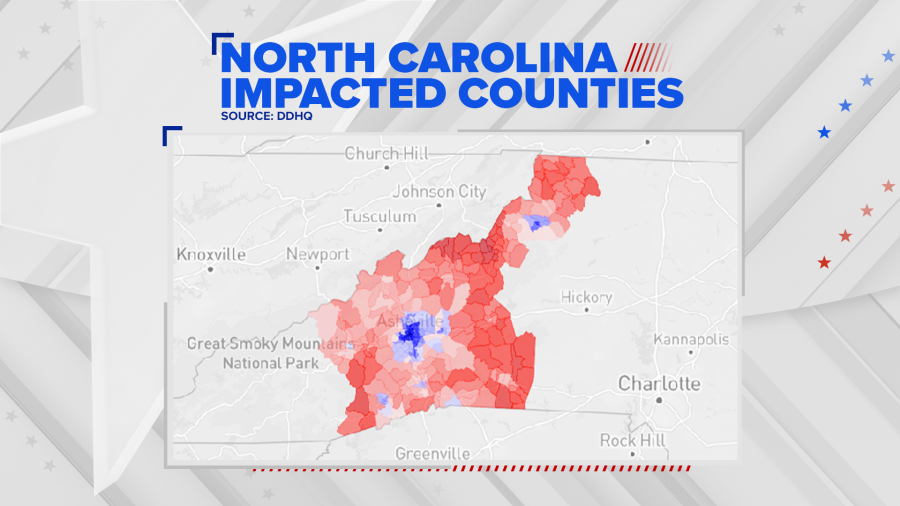(NewsNation) — Election officials in western North Carolina are scrambling to restore voting operations after Hurricane Helene left several county election boards unable to process ballots just weeks before the presidential election.
None of the 13 affected counties in western North Carolina currently has a fully operational elections board, according to the state’s secretary of state office. The disruption comes at a critical time with early voting set to begin next week.
“They have to get electricity. They’ve got to get these buildings back in order, and these workers have to worry about their homes,” said Scott Tranter, director of data science at Decision Desk HQ, who recently spoke with North Carolina’s secretary of state about the situation.
Hurricane Helene aftermath poses election hurdles in critical battlegrounds
Roughly 17% of North Carolina’s registered voters are in the disaster areas declared late last month by the Federal Emergency Management Agency (FEMA), or nearly 1.3 million voters, according to data compiled by Michael Bitzer, a politics and history professor at Catawba College in the state.
The North Carolina State Board of Elections approved changes Monday to ensure that voters in all areas of the state will have the same voting options — either by mail, early in person starting on Oct. 17 or on Election Day, said Karen Brinson Bell, the board’s executive director.
North Carolina’s mountainous west was especially hard hit by Hurricane Helene, which killed more than 200 people across six states. Many roads in the region remain impassible, and untold numbers of residents are still cut off from the outside world.
The 13 hardest-hit counties would be able to modify early voting hours and locations and change staffing plans if needed. The changes also would allow residents to pick up absentee ballots at local election offices and return them at any polling place on Election Day rather than the limited locations that were previously allowed.
Hurricane Milton restrengthens to Category 5 storm
The changes approved by the five-member election board would allow outreach teams in 13 of the hardest-hit counties to visit disaster shelters and other areas to help people complete their ballots.
The secretary of state’s office has implemented emergency measures, including allowing counties to assist each other with absentee ballot processing and modifying early voting hours. Counties with damaged facilities will be permitted to use offices in neighboring counties for voting operations.
The affected region, which includes Asheville and surrounding areas, voted 54% for former President Donald Trump in 2020. The hurricane’s impact on voting access could affect the presidential race in North Carolina, considered a key swing state, where Trump currently holds a narrow lead in most forecasts.
While state officials express confidence that operations will be restored by Election Day, the immediate challenge lies in managing early voting and absentee ballot processing.
Radar: When will Hurricane Milton hit Florida?
The federal government’s role in addressing the election challenges remains limited, as elections are primarily state-managed. Federal assistance will focus on restoring basic infrastructure such as electricity and water services.
State election officials have announced several emergency measures, including:
Cross-county processing of absentee ballot requests
Deployment of assistance teams to rebuild county offices
Modified early voting hours
Arrangements for voters to use facilities in neighboring counties
NewsNation partner The Hill and Reuters contributed to this report.
